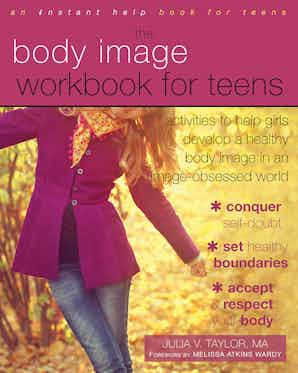TOPIC
Challenges with Teens
Caring for teens brings new challenges. As our children’s needs and desires change, parenting strategies that worked before are often no longer as effective. Whether it is the common struggle over homework, chores, and practice for extracurriculars or a more significant behavioral and emotional challenge, we’re often on the lookout to understand what support would be best for these developing adults.
FILTER

TOPIC
- Emotional and Mental Health (11)
- Mental Health Challenges (8)
- Young Adult Well-Being (7)
- Confidence (7)
- Neurodiversity (7)
- Neuroscience (7)
- Child’s Anxiety (7)
- Raising Sons (6)
- Communication Skills (6)
- Raising Nonbinary Children (5)
- Self-Esteem (5)
- Bullying (5)
- Anger Management (5)
- Transgender Well-Being (4)
- ADD/ADHD (4)
- Autism (4)
- Gender Identity (4)
- Stress Management (4)
- Self-Harm (4)
- Cognitive Behavioral Therapy (4)
- Child Defiance (4)
- Child’s Autism (4)
- Child’s ADD/ADHD (4)
- Anxiety (4)
- Nonbinary Well-Being (3)
- Transitions (3)
- Motherhood (3)
- Offering Support to Others (3)
- Family Dynamics (3)
- Latinx Well-Being (3)
- LGBTQIA Well-Being (3)
- BIPOC Well-Being (3)
- Self-Reliance (3)
- Sexuality (3)
- Goal Setting (3)
- Talk Therapy (3)
- Relationship Challenges (3)
- Depression (3)
- Compassion (3)
- Child Depression (3)
- Self-Pressure (2)
- Physical Health (2)
- Self-Control (2)
- Body Image (2)
- Sexual Health (2)
- Self-Compassion (2)
- Youth Activism (2)
- Criticism and Rejection (2)
- Positive Psychology (2)
- Brain Health (2)
- Female Empowerment (2)
- Building Character (2)
- LGBTQIA Children (2)
- Child’s Trauma (2)
- Motivation (2)
- Intimacy (2)
- Friendship (2)
- Resilience (2)
- Pregnancy and Childbirth (2)
- Panic Attacks (2)
- Negative Self-Talk (2)
- Mindfulness Practices (2)
- Attachment Theory (2)
- Anger (2)
- Disabled Well-Being (1)
- Digital Life (1)
- Connection (1)
- Family Acceptance (1)
- Asking for Help (1)
- Memoir (1)
- Foster Parenting (1)
- Performance Pressure (1)
- Death or Loss of a Loved One (1)
- Learning Styles (1)
- Personality Disorders (1)
- Identity (1)
- Passive-Aggressive Behavior (1)
- Conflict Resolution (1)
- Problem Solving (1)
- Adoption (1)
- Self-Expression (1)
- Acceptance (1)
- Psychology (1)
- Highly Sensitive People (1)
- Belonging (1)
- Men’s Well-Being (1)
- Self-Worth (1)
- Emotional Intelligence (EQ) (1)
- Self-Love (1)
- Empathy (1)
- Self-Limiting Beliefs (1)
- Honoring Emotion (1)
- Authenticity (1)
- Death or Loss of a Sibling (1)
- Reproductive Health (1)
- LGBTQIA Sexuality (1)
- Grit (1)
- LGBTQIA Parents (1)
- Mentoring (1)
- Productivity (1)
- Trust (1)
- Gender Challenges (1)
- Academic Struggles (1)
- Nonviolence (1)
- Activism/Service (1)
- Cognitive Psychology (1)
- Well-Being (1)
- Transformation (1)
- Suicide Loss Survivor (1)
- Suicide (1)
- Stress (1)
- Spiritual Quest (1)
- Social Psychology (1)
- Social Anxiety (1)
- Smoking Addiction (1)
- Sexual Assault or Abuse (1)
- Homophobia (1)
- Setting Limits and Boundaries (1)
- Self-Mastery (1)
- Self-Discovery (1)
- Self-Care (1)
- Self-Reckoning (1)
- Neuropsychology (1)
- Relationship with Money (1)
- Manifestation (1)
- Love Languages (1)
- Imagination and Creativity (1)
- Human Potential (1)
- Heartmath (1)
- Adjusting to Parenthood (1)
- Grief (1)
- Facing Own Death (1)
- Exercise (1)
- Dysfunctional Childhood (1)
- Eating Disorders (1)
- Drug Addiction (1)
- Disconnection (1)
- Death or Loss of a Parent (1)
- Loss of an Animal Companion (1)
- Death or Loss of a Child (1)
- Death and Dying (1)
- Compulsive Lying (1)
- Cognition (1)
- Child’s Social Media Addiction (1)
- Buddhism (1)
- Addiction (1)
WHAT MIGHT HELP
The information offered here is not a substitute for professional advice. Please proceed with care and caution.
EXPLORE RELATED TOPICS
- Adjusting to Parenthood
- Adoption
- Blended Families
- Child’s Challenging Behavior
- Child’s Emotional Growth
- Children’s Well-Being
- Co-Parenting
- Cross-Cultural Parenting
- Fatherhood
- Foster Parenting
- Kids and Sports
- LGBTQIA Children
- LGBTQIA Parents
- Motherhood
- Pregnancy and Childbirth
- Raising Daughters
- Raising Nonbinary Children
- Raising Sons
- Parenting
- Emotional and Mental Health
- Mental Health Challenges
- Child’s Anxiety
- Confidence
- Neurodiversity
UP NEXT
Parenting
Want More Like This?
To continue customizing your FindCenter experience, create an account. It’s free!
Create an account to discover wisdom, save your favorite content, and connect with teachers and seekers.
IT’S FREE
If you already have an account, please log in.










